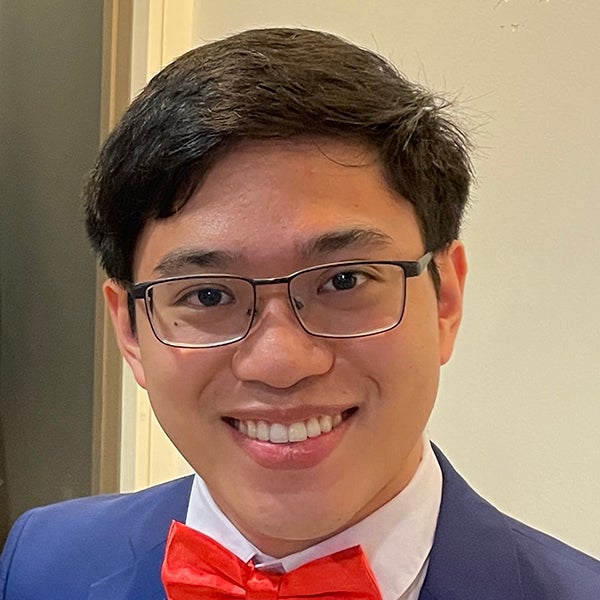Major: Neuroscience, Minor: History
Junior neuroscience major Gabriel Bolanos arrived at Rice with a deep interest in both STEM and the humanities. Gabriel was drawn to the interdisciplinary nature of the neuroscience major, which “is a great way to combine interests in psychology, molecular biology and more.” A history minor and performing with Rice Apollos, an a cappella group, also provide enriching opportunities to explore his passion for the arts and humanities.
One of Gabriel’s favorite campus activities, BrainSTEM, offers a creative way to share his dedication to STEM. He describes BrainSTEM as “a mixture of a one-credit class and an extracurricular club.” BrainSTEM students design and lead weekly lessons for K-12 students at under-resourced schools. Gabriel emphasizes that their main goal is to make learning fun and spark an interest in science. “While they may not remember all the content,” he said, “we hope they remember learning fun things about the brain.”
Gabriel discovered BrainSTEM as a prospective student while exploring student clubs at Rice. “I saw BrainSTEM and thought, ‘That sounds so cool. That is exactly what I want to do.’,” he recalled. He joined during his first year at Rice and has remained an active member ever since.
BrainSTEM is not just a one-time experience; it is a multi-semester course. Over time, students learn more about teaching pedagogy and project management, honing their skills in effective lesson delivery, class presentations and collaborative lesson planning.
Among the many lessons Gabriel has been a part of, one is particularly memorable: a lesson about memory that he co-presented with another student. Their strategy involved drawing attention to a large box of candy placed prominently at the front of the classroom. His partner arrived to steal the candy box, a fun touch designed to engage the students. The students were encouraged to write down everything they remembered about the candy thief, and then the group discussed how memory can be distorted and changed by factors like leading questions. “That lesson stands out to me because they just had a blast,” Gabriel said.
While many students conclude their involvement with BrainSTEM after the third semester, Gabriel’s passion led him to become a TA, where he helps Rice students prepare presentations and lesson plans while continuing to work directly with K-12 students.
This experience has significantly improved Gabriel’s communication skills, teaching him to convey information in a way that resonates with younger audiences. He notes, “Being able to condense complex ideas into terms that a layperson can understand is important for scientists.” His work with young students has also honed his ability to adapt quickly and maintain a sense of humor when things don’t go as planned. “Children can be chaotic,” he said. “It’s important to be able to improvise and laugh when things don’t work out properly.”
Gabriel’s dedication to sharing the joy of science and connecting with students underscores his potential to make a profound impact in the future. He plans to attend medical school after graduation — and is relieved to be done with the MCAT! There is no doubt that Gabriel’s future endeavors will leave an indelible mark on the world of medicine and science, exemplifying the importance of nurturing the next generation of scientific minds.

